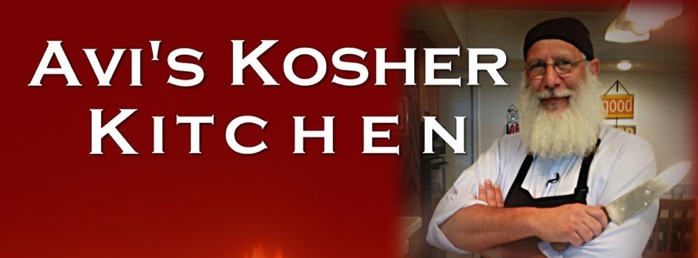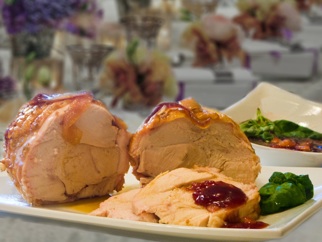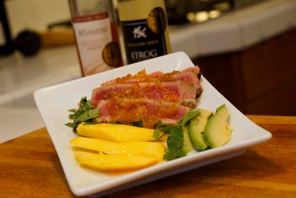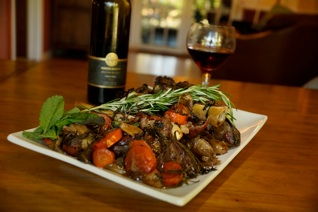I Have a Problem
with Passover


Every year at this time, it seems like a collective scream goes up from Jewish households worldwide. “AHHHHH!!!! PESAH’S COMING!!!! “
The first order of business in my house is to take a careful assessment of all the hametz in the house and determine what we must get rid of. Traditionally I start with my liquor cabinet. Somehow starting there always makes the rest of the job easier and more fun. Go figure.
Now I have always believed that we make too big a deal out of our Pesach menus and the subsequent foods for the eight days (seven if you’re in Israel) of the holiday. In the weeks leading up to Passover you’ll see grocery stores flooded with all sorts of KFP (kosher for Passover) products. Now let’s get real. Do you really need to spend around ten bucks on a box of KFP cereal that looks like it’ll last a month and then you open it up only to find about two bowls worth of chipped cardboard with sugar on it?

How many of you spent hours of your time trying to figure out what to cook and how to make it? You wanted to know what to substitute for what, essentially in order to make Pesach . . . less like Pesach. I received all sorts of emails from fellow foodies regarding what to make and how to make your life feel as “normal” as possible. I contend that we’ve made the holiday meals out to be the hardest meals to prepare. They don’t need to be.
For us it’s back to the basics, fresh vegetables, minimally processed foods and natural foods. I VERY rarely buy any of the ‘gimmicky’ Passover foods. This is a great opportunity to get some fresh herbs and spices into your dishes. It’s easy, you don’t need to know any fancy substitutions, and you don’t need any highly starched foods that give new meaning to “Let My People Go.”
We spend hundreds if not thousands of dollars on food items this week in order to “fool our palate” that it’s not really Pesach.
Get Over It.

The food is supposed to be basic and chametz free. One of the reasons our sages give for eliminating chametz in our lives for the days of Pesach is to act as a metaphor for our inflated egos and slavery to the mundane physical aspects of the world. By taking physical action along with the proper spiritual intent, we in effect bridge the physical and the spiritual.
So who are we fooling?
I’d like to propose that by trying to make our Pesach foods as “unPesach” as we can, we are really defeating the purpose of Pesach. Pesach is the start of a spiritual journey for us. As much as the Seder and the symbolic foods we eat during it are supposed to take us from slavery to redemption in a spiritual way, all the days of Pesach serve as the start of a spiritual journey that takes us from the lowest levels of spiritual impurity to the highest levels on Shavuot, when we once again receive the Torah.
On the second night of Pesach we start to count the Omer. There are many reasons given for this, one of which is that we are supposed to be refining our souls spiritually in order to be worthy of receiving the Torah. It is a journey that starts on Pesach.

By the time we reach Shavuot, we should have grown spiritually to the point where we are not only worthy of receiving the Torah, but where we inculcate the Torah into every part of our lives.
The journey should start with the proper intent, the proper steps and the proper bridging of our physical and spiritual. May your journey this year be one of success. And may we all merit to stand together at the newly build Beit HaMikdash with Mashiach.
L’Chaim . . . Avi